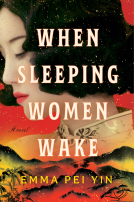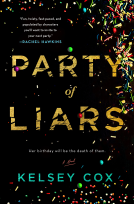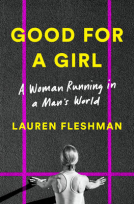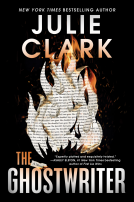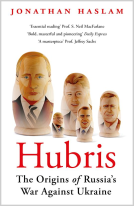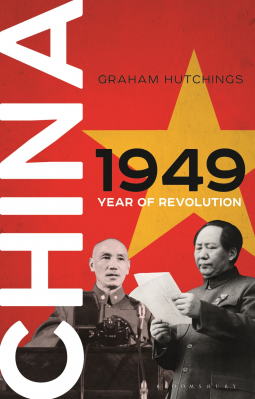
China 1949
Year of Revolution
by Graham Hutchings
This title was previously available on NetGalley and is now archived.
Send NetGalley books directly to your Kindle or Kindle app
1
To read on a Kindle or Kindle app, please add kindle@netgalley.com as an approved email address to receive files in your Amazon account. Click here for step-by-step instructions.
2
Also find your Kindle email address within your Amazon account, and enter it here.
Pub Date Jan 28 2021 | Archive Date Feb 28 2021
Talking about this book? Use #China1949 #NetGalley. More hashtag tips!
Description
The events of 1949 in China reverberated across the world and throughout the rest of the century. That tumultuous year saw the dramatic collapse of Chiang Kai-shek's 'pro-Western' Nationalist government, overthrown by Mao Zedong and his communist armies, and the foundation of the People's Republic of China.
China 1949 follows the huge military forces that tramped across the country, the exile of once-powerful leaders and the alarm of the foreign powers watching on. The well-known figures of the Revolution are all here. But so are lesser known military and political leaders along with a host of 'ordinary' Chinese citizens and foreigners caught in the maelstrom. They include the often neglected but crucial role played by the 'Guangxi faction' within Chiang's own regime, the fate of a country woman who fled her village carrying her baby to avoid the fighting, a prominent Shanghai business man and a schoolboy from Nanyang, ordered by his teachers to trek south with his classmates in search of safety. Shadowing both the leaders and the people of China in 1949, Hutchings reveals the lived experiences, aftermath and consequences of this pivotal year -- one in which careers were made and ruined, and popular hopes for a 'new China' contrasted with fears that it would change the country forever.
The legacy of 1949 still resonates today as the founding myth, source of national identity and root of the political behaviour of modern China. Graham Hutchings has written a vivid, gripping account of the year in which China abruptly changed course, and pulled the rest of world history along with it.
Advance Praise
‘A wonderful read’. Steve Tsang, Director of the China Institute, SOAS University of London
‘Tells a fascinating story with pace and elegance, and illuminates what is happening in China, Taiwan and Hong Kong today.’ Simon Scott Plummer, Writer on East Asia for The Times and Chief Foreign Leader Writer for The Daily Telegraph
‘A compelling achievement.’ Rana Mitter, Director of the University China Centre, University of Oxford, UK, and author of China's Good War: How World War II is Shaping a New Nationalism
‘Peppered with piquant detail that brings the unfolding events of 1949 vividly to life.’ Bob Ash, Emeritus Professor, SOAS, University of London
Available Editions
| EDITION | Hardcover |
| ISBN | 9780755607334 |
| PRICE | £25.00 (GBP) |
Links
Featured Reviews
Here for this. I loved this. This time era is the point of contention for history itself and for arguments against the implementation of programs that are similar to the ones you see take place in this book. I thought this book really took you behind the scenes and broke things done in such a way that really shed light on this time.
 Reviewer 703837
Reviewer 703837
This excellent book focuses on a single year of the twentieth-century - the year in which the Communist Party of China overran the country south of the Yangtze and chased Chiang Kai-shek out (to Taiwan). They installed new city governors, implemented land reform and sought to be a credible force for reform. They wriggled free of Stalin’s control and set off on their own journey. Hutchings takes a chronological approach as we move through the year, falling the invading army on their way south. The author fills in necessary back-story, scene-setting, and basic analysis as we go along.
Hutchings has described and explained the key events in a book that is a masterpiece of expository writing. There is a lot of detail about culture, the regional provinces, the factional in-fighting and the structure of governance for the Nationalists and the Communists, but it never feels dense or confusing (and I say this as a relative newcomer to this story). The book charts, with impressive clarity and narrative flow, the key episodes, such as the capture of Beijing (which he spells as Beiping), the crossing of the Yangtze River, the transfer of financial and cultural resources to Taiwan, and the capture of Shanghai. He mixes in a range of short individual stories, and charts the impacts on ‘offshore China’: Hong Kong and Taiwan. From a position of relative ignorance, I now feel I have a fairly solid handle on these momentous events.
There is a simple timeline at the start, some basic maps and some striking photographs t throughout. Not to sound like a stuck record but I really can’t remember reading a book that was so lucidly written. I think anyone with an interest, however casual, in recent Chinese history will find plenty to admire in this superb book.
 Michael G, Reviewer
Michael G, Reviewer
In China 1949 Year of Revolution, Graham Hutchings makes a convincing argument that 1949 was the defining year of the Chinese Revolution detailing the collapse of the Nationalist government and the takeover by the Communists.
Hutchings does a really good job of looking at the conflict from all sides: the grand historical figures Chiang Kai-shek, Mao. The foreign powers: The United States, United Kingdom, Soviet Union, and even ordinary people teachers, missionaries, students, and mothers. This gives the story more of a collective feel as to what it was like to live and move within China as the country crumbled.
If I can offer a criticism it would be that by choosing the year 1949, the author has to go through a lot of history just to prepare the ground for the story of 1949. I felt like it took a good 20-30% of the book just to set the stage for the story that Hutchings wants to tell. On one hand, it is good to not assume that everyone who reads your book knows the complex history of the Chinese civil war, but the story gets lost in some ways.
It’s a solidly written story told from different directions that may have shared just a touch too much history.
Readers who liked this book also liked:
Jodi Picoult; Jennifer Finney Boylan
General Fiction (Adult), Literary Fiction, Women's Fiction



